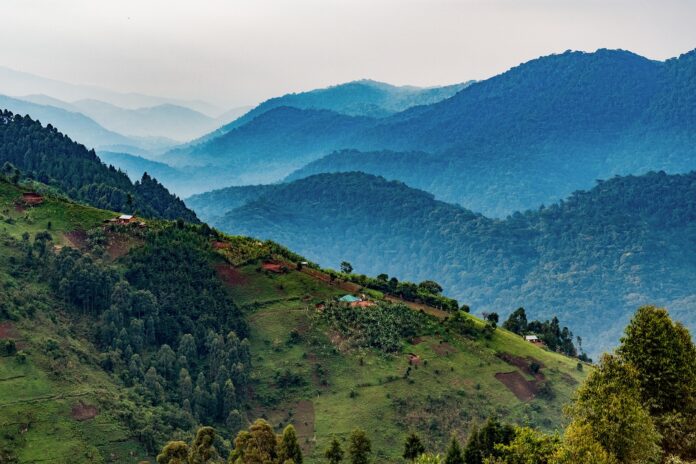The Virunga Landscape in East Africa stands as a bastion of biodiversity, sheltering endangered species like the mountain gorilla within its protected confines. Yet, despite its status, illegal activities such as poaching and resource exploitation persist, posing threats to the delicate ecological balance. Shedding light on the intricate motivations driving such actions, a recent study spearheaded by Assistant Professor Edwin Sabuhoro from Penn State College of Health and Human Development offers valuable insights into the dynamics of illegal forest use within protected parks.
Delving into the heart of community perspectives, Sabuhoro’s team explored the underlying factors influencing participation or abstention from illegal forest activities. Their findings, published in the journal Forests, underscore a crucial link between enhanced life satisfaction and diminished reliance on illegal forest use for livelihood purposes. This suggests that addressing broader issues of well-being within communities can serve as a potent deterrent against illicit activities within protected areas. Sabuhoro emphasizes the multifaceted nature of these illegal practices, which often stem from pressing livelihood insecurities. In communities grappling with food scarcity or housing needs, the allure of forest resources can be tantalizingly strong, driving individuals to breach park boundaries in search of sustenance or shelter materials. However, the study reveals a promising trend: where perceived life satisfaction is higher, instances of illegal forest use plummet, highlighting the pivotal role of holistic well-being in fostering sustainable conservation practices.
Yet, the narrative isn’t one-dimensional. Traditional values and cultural norms also wield considerable influence over individuals’ behaviors, sometimes even outweighing improvements in material well-being. Even amidst economic progress and access to modern amenities, some may still prioritize traditional practices, viewing them as integral to their identity and heritage. This intricate interplay between modernity and tradition underscores the need for nuanced approaches to conservation that respect and accommodate diverse cultural perspectives. To unravel these complexities, the research team conducted extensive surveys among household heads residing near Volcanoes National Park in Rwanda and Mgahinga National Park in Uganda. By engaging directly with community members and safeguarding their anonymity, the study ensured a comprehensive understanding of local dynamics and concerns—a crucial step towards crafting effective conservation strategies.
Sabuhoro emphasizes the importance of bridging the gap between research findings and policy implementation, advocating for proactive, community-centered approaches to conservation. Rather than relying on short-term, reactive measures, he calls for sustained engagement with local stakeholders, incorporating their insights into long-term policy frameworks. By aligning conservation efforts with community aspirations and priorities, policymakers can foster a symbiotic relationship between people and parks, laying the groundwork for enduring conservation success.
Looking ahead, Sabuhoro envisions a broader application of this research model across East Africa’s protected areas, advocating for a collaborative, research-driven approach to conservation. By empowering communities and fostering a sense of ownership over their natural heritage, he believes we can forge a path towards sustainable coexistence between humans and wildlife—a vision where thriving communities become the cornerstone of effective conservation efforts.
















 The African Research (AR) Index is a comprehensive scholarly directory and database focused explicitly on journal publishers that publish and disseminate African research.
The African Research (AR) Index is a comprehensive scholarly directory and database focused explicitly on journal publishers that publish and disseminate African research.

